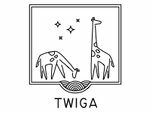The TWIGA project started over a year ago when all TWIGA partners signed a Grant Agreement with the European Commission, consisting of a description of the action and legal parts. If TWIGA were a restaurant, the Grant Agreement basically is our promised menu (including a lot of terms at the back). In our previous TWIGA blogs we have highlighted several of the efforts and results we have cooked up in TWIGA, and now let us have a look in the kitchen.
Cooperation within the H2020 project
For those readers unfamiliar with H2020 projects, it is important to note that projects are realised in a consortium of partners. Each partner has their own responsibility to deliver the promised work in accordance with the rules set out in the Grant Agreement. All partners cooperate in different compositions on different tasks in several courses of the TWIGA menu. Universities, companies, SME’s from Europe and Africa each provide a wide array of ingredients to the courses’ recipes. And if there is something I have learned from African hospitality, it is that portions are plenty and well-spiced.
Decision-making with work-package leaders
For each course there is one partner assigned as a Work Package leader to coordinate the course activities. The courses are overseen and discussed on a regular basis by the Executive Board, consisting of the Work Package leaders, a Quality Manager and chaired by TU Delft as Project Coordinator. TU Delft also coordinates and monitors the budget, rules and regulations. Any decisions affecting the menu are decided on by all partners in a TWIGA General Assembly vote and formally requested to the European Commission.
Reviewing with the board members
External Advisory Board members are invited on occasion for a tour of the TWIGA restaurant and to provide their expert feedback and insight. In half a year our Project Officer and External Reviewers from the European Commission will review our progress in our first mid-term report and make sure that we deliver the meal as promised. Each partner will report on actual effort and cost of their ingredients, making sure their costs are eligible and keeping their records in order.
Conclusion
As they say; “if you can’t stand the heat, get out of the kitchen”. And at times tight deadlines, reporting and regular meetings can pose a challenge. Complex research projects such as these therefore rely on constructive teamwork, trust and open communication between partners, coordinator and the Commission. This is thankfully the case in our TWIGA project, where we enjoy each other’s company and love sharing a meal.
Written by Eva Spoor
TU Delft

